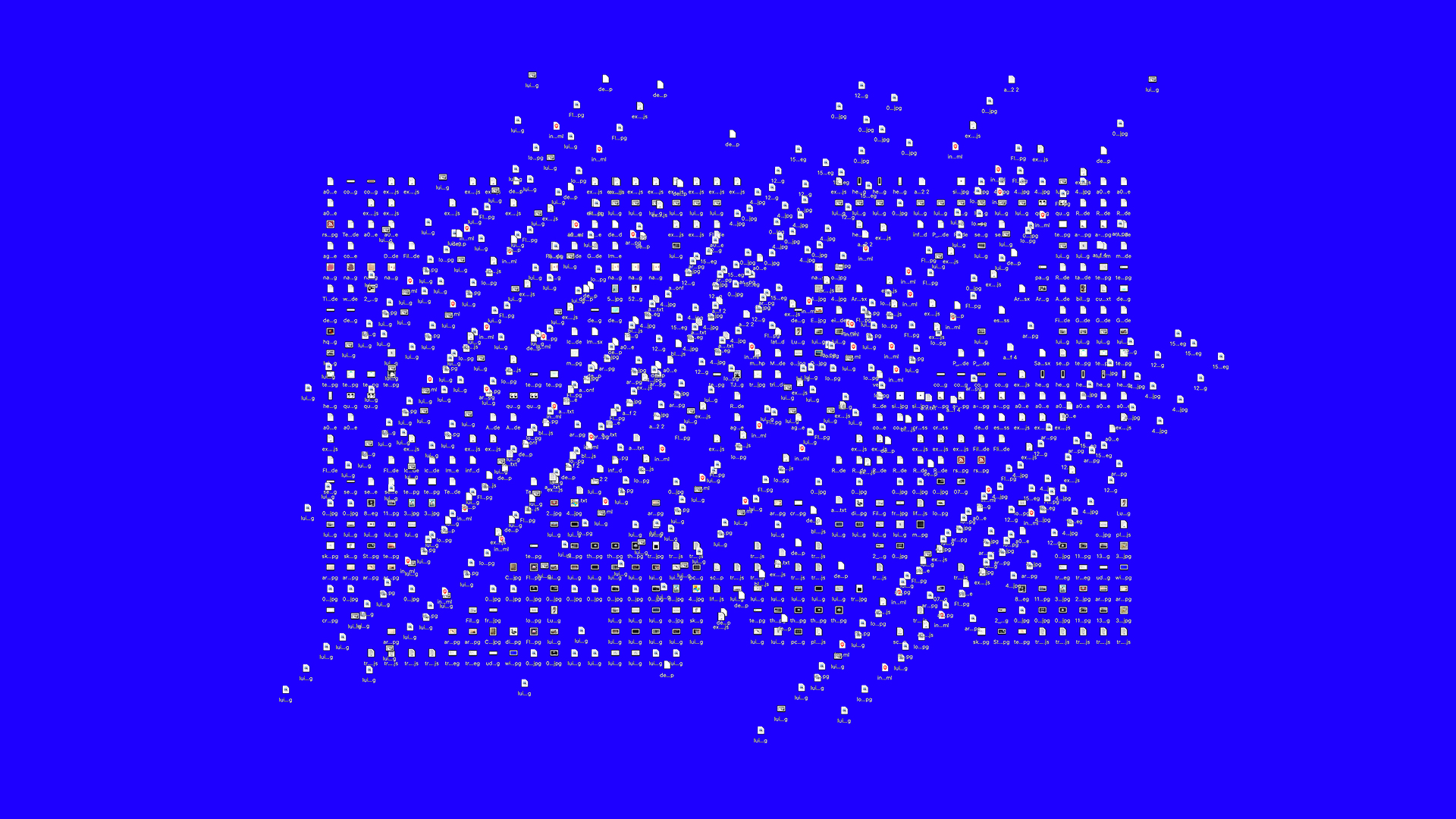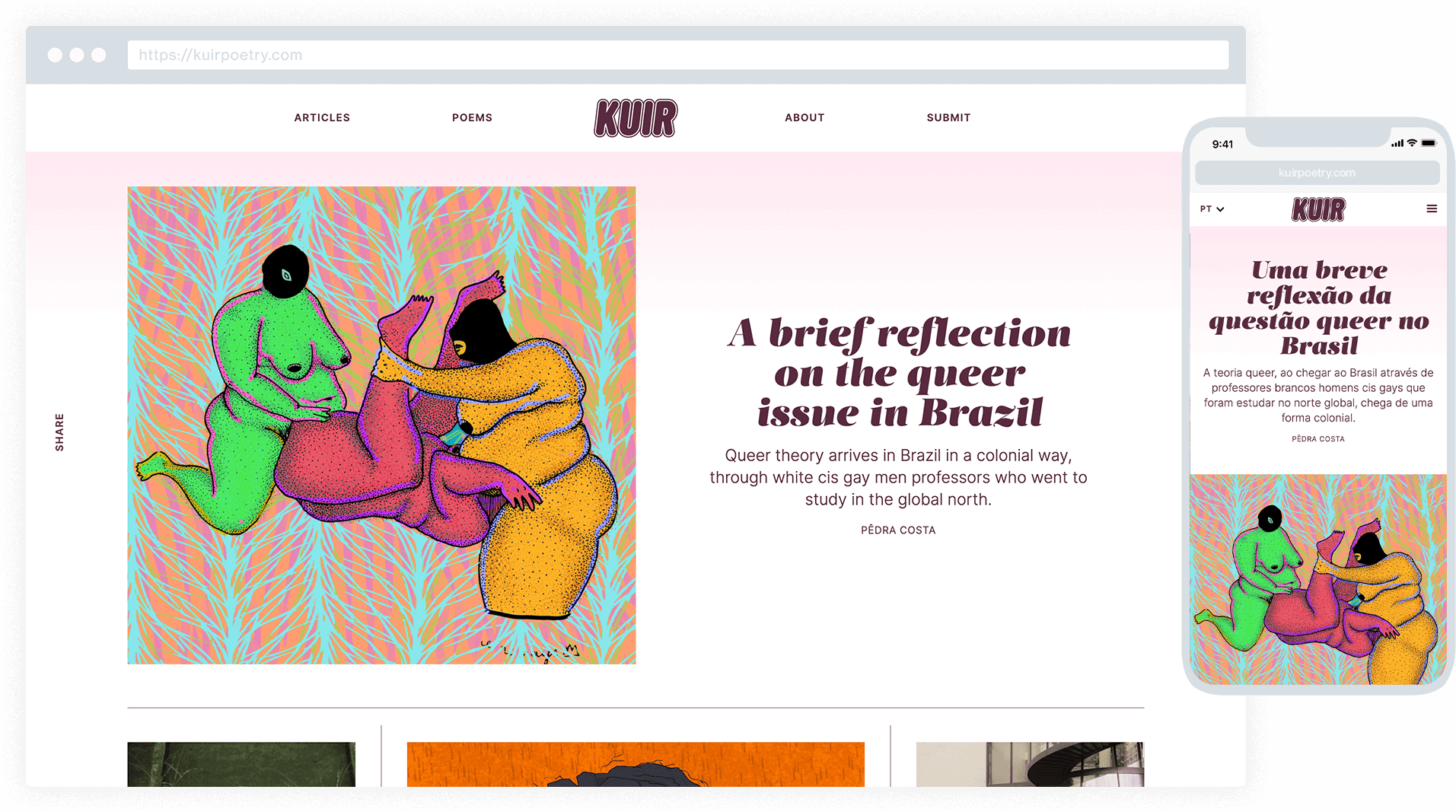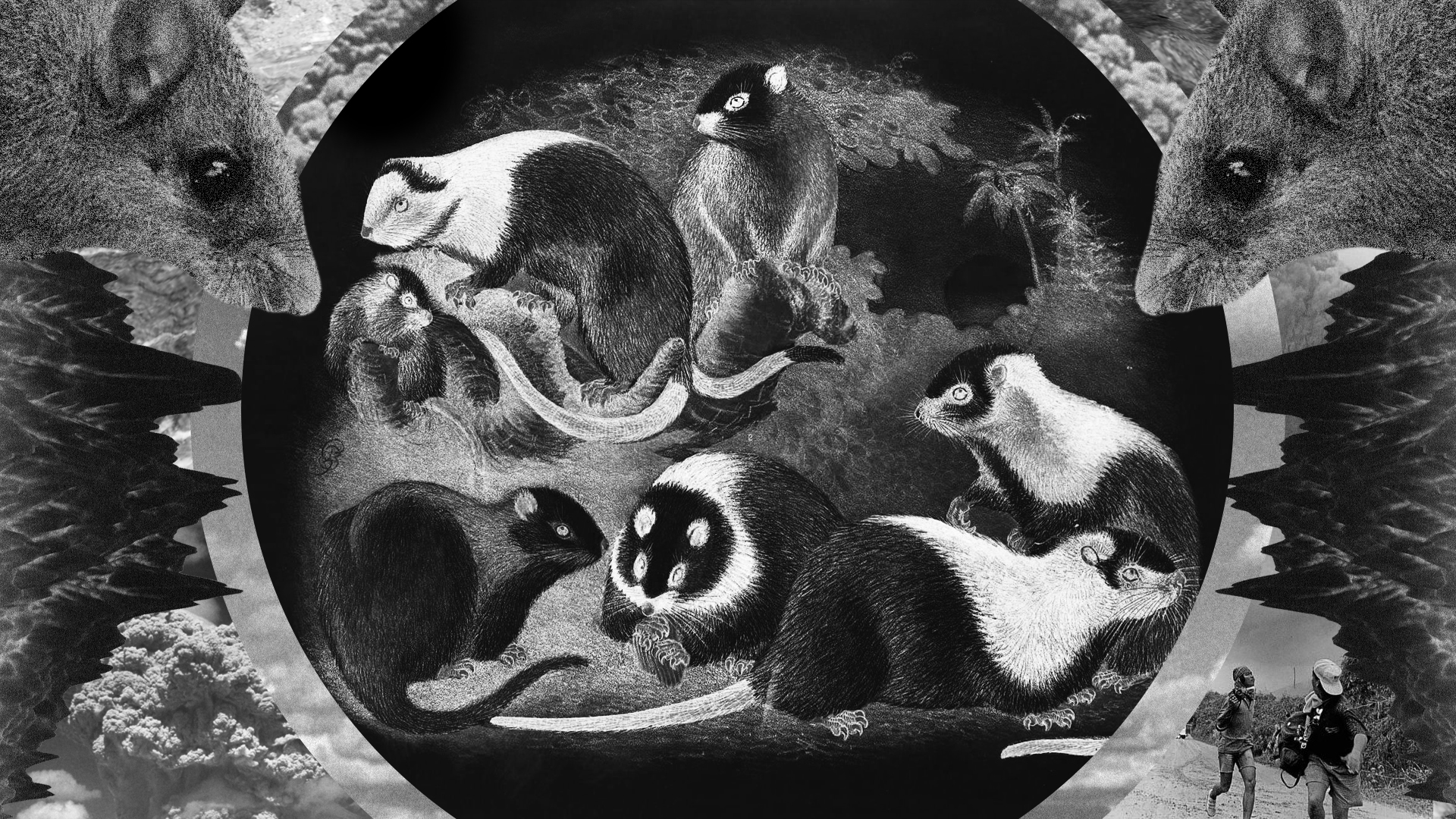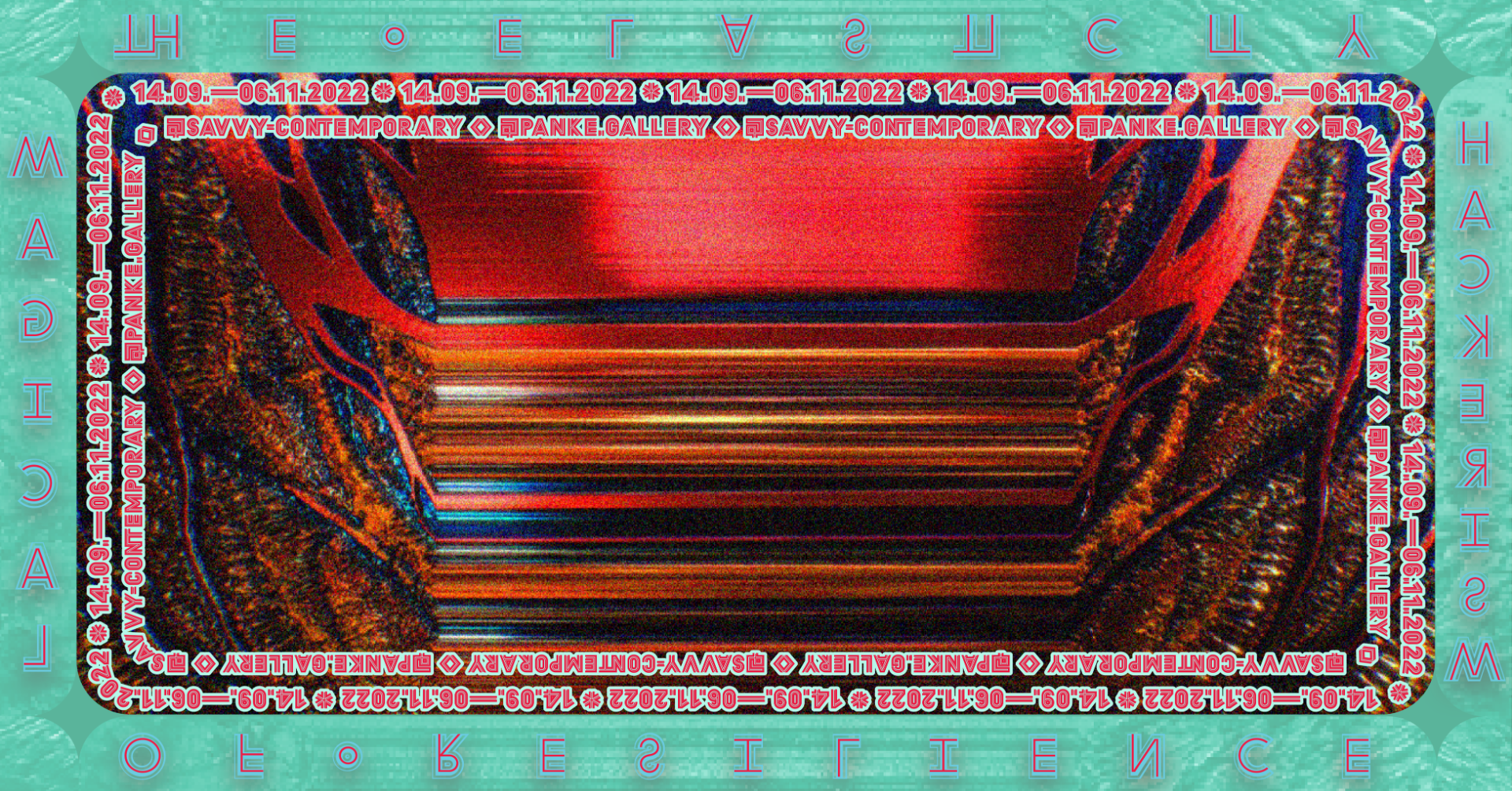Magical Hackerism Web Residencies

Four web Residency Projects announced
Islam Shabana (Egypt) & Luiz Zanotello (Brazil/Germany), Jô Osbórnia (Brazil/Germany) & Jota Ramos (Brazil/Germany), Adaptive Radiations Working Group,(Philippines), Chidumaga Uzoma Orji (Nigeria)
In the framework of the project Magical Hackerism or The Elasticity of Resilience, SAVVY Contemporary and Akademie Schloss Solitude’s Digital program offer four web residencies to practitioners and communities within the tropical belt, exploring situated knowledges, forming local DIT (Do It Together) community networks, and/or connecting intertropically on a planetary level. The residents become part of the larger project Magical Hackerism or The Elasticity of Resilience, as well as a rhizome/node of Futura Trōpica Netroots for a lateral exchange of situated knowledges.
The four chosen web residents have in common a situated embeddedness in endemic knowledge systems. They share an interest in DIT (Do It Together), community networks, and connecting intertropically on a planetary and/or poetic level. In early 2023, their web residency activities will potentially become a rhizome or node within Futura Trōpica Netroots: The »Magical Hackerisms« web residency gathers intertropical artists to discuss intertropical mindsets and approaches, adding their responses to Futura Trōpica Netroots in the form of situated techno discoursed, audio-visual, and/or poetical content. With this residency we aim to share an understanding of those tropical magical protocols. Tech support will come from Juan Pablo García Sossa and Sarah Grant (from the Critical Engineering Working Group).
THE FOUR SELECTED PROJECTS

A Knot in Motion: On the Accident of Rain
by Islam Shabana (El Kharja/Egypt, Cairo/Egypt) & Luiz Zanotello (Jundiaí/Brazil, Berlin/Germany)
For the web residency, Islam Shabana and Luiz Zanotello propose tying a knot between the El Kharja oasis (near the Tropic of Cancer) and Jundiaí (near the Tropic of Capricorn) by tracing the material/discursive/poetic accidents around one topic of interest: the rain. They propose to set up two nodes of the Futura Trōpica Rhizome, collecting/spreading rain-data on both sides for future intertropical exchange.

HACKING ANTI-COLONIAL KUIR POETRY THROUGH THE TROPICS
Jô Osbórnia (Rio de Janeiro/Brazil, based in Berlin/Germany) & Jota Ramos ( Alegre/Brazil, based in Berlin/Germany)
A digital and collective attempt, this project aims at disrupting the colonial ordering of the world through LBTQIA+ works and languages from the Global South. Jô Osbórnia and Jota Ramos for KUIR Poetry plan to connect communities from Colombia, DR Congo, and India, strengthening especially non-normative perspectives.

Cloudrunner: The Pinatubo Field Guide to Solar Geoengineering
Adaptive Radiations Working Group (Zambales/Philippines)
Mica Cabildo and JM Quiblat for Adaptive Radiations Working Group revisit the 1991 Pinatubo eruption. The project Cloudrunner investiagtes endemic responses to ethical, technological, and political risks posed by planetary-scale technological climate interventions on Pinatubo’s displaced populations and ecologies.

Achebe’s Internet: Proverbial Protocol
by Chidumaga Uzoma Orji (Abuja/Nigeria)
Can we create a modern information system premised on the foundational wisdom of [Igbo]proverbs? What would the internet look like if it were designed to mirror ancestral systems of knowledge production that prioritize the dissemination of wisdom over mere information? These are the questions at the heart of Achebe’s Internet/Proverbial Protocol, a research project that seeks to situate ancestral wisdom ecologies within contemporary technological frameworks.
The Netting Group & Jurors
Alejo Duque is an artist involved with collaborative/participatory arts that celebrate cultural agitation with a defined ethos and technosocial affects. His art practice is based on crossing video art and sound art with new, old and unstable media, as well as with open software and hardware. Alejandro is experienced in network based art (net.art) and streaming technologies. He is a radio amateur with callsign -HK4ADJ- and holds a Phd in Media Philosophy (Switzerland). He is a founding member of networks such as Bricolabs, dorkbot, labSurlab, un\loquer and Pnode. Currently, he is active on red.radiolibre.cc and Coomunarte.
Czar Kristoff(Camarines Sur, Capricorn Earth Snake) is an artist, educator, designer, and publisher, interested in (re)construction of space and memory, through concepts of nesting and temporary architecture, for (pedagogical) occupation, using cottage industry publishing – blueprints, Xerox, and other low-fidelity printing methods – as his current media of interest. He has exhibited at the Stedelijk Museum Amsterdam, Showroom MAMA Rotterdam, Jogja National Museum, C3 Artspace Melbourne, Bangkok Arts and Culture Center, De Appel Amsterdam, Dansehallerne Copenhagen, and Vargas Museum Manila. Kristoff runs Temporary UnReLearning (URL) Academy, a school with no permanent address, interested in queering art and cultural production in the Philippines.
Neema Githere (they/she) is an artist and guerrilla theorist whose work explores love and indigeneity in a time of algorithmic debris. Having dreamt themselves into the world via the internet from an early age and subsequently traveled to more than twenty countries researching Black cultural production, Githere’s practice investigates digital Africanity through experiments that span public lectures, community organizing, curation, performance, and image-making.
Githere’s concept of Afropresentism – a term they coined in 2017 to explore diasporic embodiment in the age of Big Data – has influenced exhibitions from London to Lagos, and been profiled in BOMB magazine. Their experimental practice, data:healing, seeks to illuminate the links between technology, nature, and spirituality to investigate how working from this intersection can combat data trauma, a term coined by Olivia Ross.
In 2018, Githere left Yale University to pursue a path of unschooling, and has since lectured at cultural institutions and organizations across North America and Europe, including Studio Olafur Eliasson, Microsoft, and the Toronto Queer Film Festival.
Anderu Immaculate Mali a.k.a. Immy Mali lives and works in Kampala, Uganda. Using a variety of media including, text, video, sound, sculpture, installation, and animation, her work attempts to unpack the complexities and entanglements of memory and existence in a neo/postcolonial Uganda. Notions of presence and absence, personal memories of childhood growing up in Uganda juxtaposed with current personal and collective experiences of existence in shifting spaces and places also influence her work. Her ongoing project »Letters to my childhood« (2017–present) accords her the duality to engage with her past and present simultaneously.
She is a cofounder of Iraa The Granary, an experimental artist’s kitchen geared toward exploring the possibility of creating archival/memory systems of artists’ work relevant to the African context. In 2013, she obtained her BA in Industrial and Fine Arts from Margaret Trowell School of Industrial and Fine Arts, Makerere University, Kampala. She is an alumna of the Rijksakademie van Beeldende Kunsten in Amsterdam, Netherlands (2018–19). She has participated in exhibitions, residencies, and workshops online and in countries including Kenya, Netherlands, India, Ethiopia, Denmark, Germany, the United States, South Africa, Mozambique, Angola, and Uganda. Her work has been published in art magazines including African Arts 2019.
Sahej Rahal lives and works in Mumbai. In 2011, he graduated from the Rachana Sansad Academy of Fine Arts & Crafts in Mumbai, majoring in painting. Sahej Rahal has since expanded his practice to explore a burgeoning mythology through installations, films, and performances. His work has been exhibited at the Kochi–Muziris Biennale 2014, the MACRO Museum in Rome/Italy, GALLERIA CONTINUA in Les Moulins/France, GASWORKS in London/Great Britain 2013, the Vancouver Biennale 2014, the Jewish Museum in New York, NY/USA, Art Stage Singapore, the Setouchi Triennale 2016 in Japan, and most recently as a part of the Liverpool Biennial 2016.
He is a recipient of Inlaks Fine Arts Award 2012, the IFA Critical Arts Practice grant 2014 and has been awarded the Forbes India Art Award 2014 for best debut show for his solo exhibition Forerunner at Chatterjee & Lal, Mumbai, the Cove Park/Henry Moore Fellowship, 2017, Akademie Schloss Solitude Fellowship 2018, and most recently the Sher-Gil Sundaram Arts Foundation Installation Art Grant, 2019, and Human Machine Fellowship, Akademie der Künste, 2020.
Morehshin Allahyari (Persian: موره شین اللهیاری) is a NY based Iranian-Kurdish artist using 3D simulation, video, sculpture, and digital fabrication as tools to re-figure myth and history. Through archival practices and storytelling, her work weaves together complex counternarratives in opposition to the lasting influence of Western technological colonialism in the context of SWANA (Southwest Asia and North Africa). Her work has been part of numerous exhibitions, festivals, and workshops at venues throughout the world, including the New Museum, MoMa, Centre Pompidou, Venice Biennale di Architecture, and Museum für Angewandte Kunst among many others. She is the recipient of The United States Artist Fellowship (2021), The Joan Mitchell Foundation Painters & Sculptors Grant (2019), The Sundance Institute New Frontier International Fellowship (2019), and the Leading Global Thinkers of 2016 award by Foreign Policy magazine. Her artworks are in the collection of the Whitney Museum of American Art, San Francisco Museum of Modern Art, and the Current Museum. She has been featured in The New York Times, BBC, Huffington Post, Wired, National Public Radio, Parkett Art Magazine, Frieze, Rhizome, Hyperallergic, and Al Jazeera, among others..
ABOUT THE WEB RESIDENCY PROGRAM BY SOLITUDE
In 2016, Akademie Schloss Solitude launched the web residencies to encourage young talents of the international digital scene and artists from all disciplines dealing with web-based practices. ZKM was program partner from 2017–19. For each call, the curator or collective selects project proposals whose creators receive a six-week residency and a grant. Artists are invited to experiment with digital technologies and web-based practices, and reflect on the topics set by the curators. Web residencies are carried out exclusively online, and the works are presented online. Artists of all disciplines as well as former Solitude fellows may apply. There is no age limit
Collaboration & Support Magical Hackerism is a SAVVY Contemporary project in collaboration with panke.gallery, funded by the Senatsverwaltung für Kultur und Europa des Landes Berlin. The Netting Group is supported by Schloss Solitude’s Digital Solitude Web Residencies Program.
The exhibition is taking place in the framework of Berlin Art Week.

